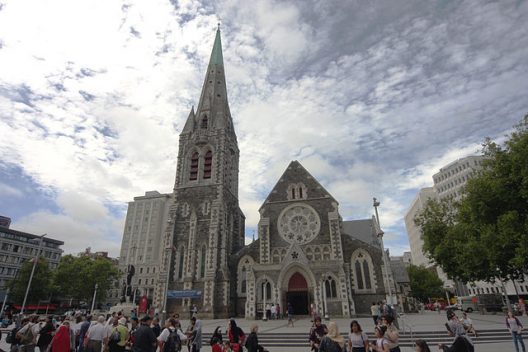A few days after our last update a deadly act of terrorism struck Christchurch, New Zealand on March 15th. A fanatical white supremacist whose name I won’t share here (he’s gotten too much publicity already) had made his Islamophobia well known with a 73 page diatribe shared online before his attack began. The Australian native seemingly hated anyone and everyone who wasn’t either white and European, calling for anybody that didn’t fit that criteria to be “removed from his land” in his alt-right manifesto. It wasn’t enough for him to share his intolerant views on the internet though. Our would be “ethno-nationalist” decided to kill en masse by going from mosque to mosque during Jumu’ah, the Friday call to prayer for Muslim faithful. As a result he knew in advance each holy place he visited would be well attended and his spray of bullets would be horrifying. His attack was so hideously successful that one out of every 500 Muslims in New Zealand was killed in a single day.
For the longest time I had naively believed anti-Muslim prejudice (widely called Islamophobia regardless of accuracy) was a uniquely American problem. When I first wrote about the subject in a 2015 editorial, I was speaking largely to an audience in the United States and perhaps North American in general, despite the fact this site has a global audience. I never specifically said “the rising tide of anti-Muslim prejudice in the U.S.” but I was certainly thinking it, because the Presidential campaign of then candidate Donald Trump was stirring up a kind of bigotry and xenophobia I had never before seen in my adult life. Even in the wake of the 9/11 terrorist attacks, President Bush had sought to remind us that Muslims were not the enemy — radical extremist hatred was the exception and not the rule. Trump promoted the opposite.
Despite my hope that election night 2016 would put an end to his brand of bigotry, race-baiting and fear mongering, the end result was something that might punctuate a tweet from our current President: “SAD!” The loser of the popular vote wound up the winner of the electoral college, and his campaign of intolerance has gotten even louder and nastier thanks to the bully pulpit that the White House affords him.
For what it’s worth though I don’t think we can attribute what happened in Christchurch on March 15th to Trump and Trump alone. While I think it’s fair to say that he exports a kind of bigotry on a global scale that no President has in over a century, there’s no doubt that home grown intolerance has been exhibited globally for decades. I should never have needed to know how to use the word “genocide” in a sentence but I’ve seen it over and over again in my lifetime. The Bosnian genocide of the early 1990’s, the Rwandan genocide of 1994, the Assyrian exodus from Iraq, the persecution of Rohingya in Myanmar, it’s a sad list that goes on and on. Despite the fact we live in a globally interconnected world, these atrocities happen with seemingly no will on the part of the international community to make them stop.
There probably isn’t any person living on the planet today I dislike more than the 45th President of the United States, but his brand of hate is a symptom of global racism and intolerance and a regurgitation of it onto the masses. “Think globally, act locally” is one of those cliches that environmentalists can bumper sticker onto their cause, but it may be time to consider those words in a far broader sense. It’s about time we think globally not just about the environment but about racism, religious intolerance, hate and bigotry. This editorial not only doesn’t begin to scratch the surface but can’t even flick a single flea off a dog. It’s not just that I’m “preaching to the choir”, it’s that the audience it’s intended for can’t even hear the sermon. Unless there exists a global will far beyond the availability of an internet connection to address this issue, the sad tragedy of Christchurch will repeat itself around the world as man continues to prove the depths of his inhumanity to all mankind.

